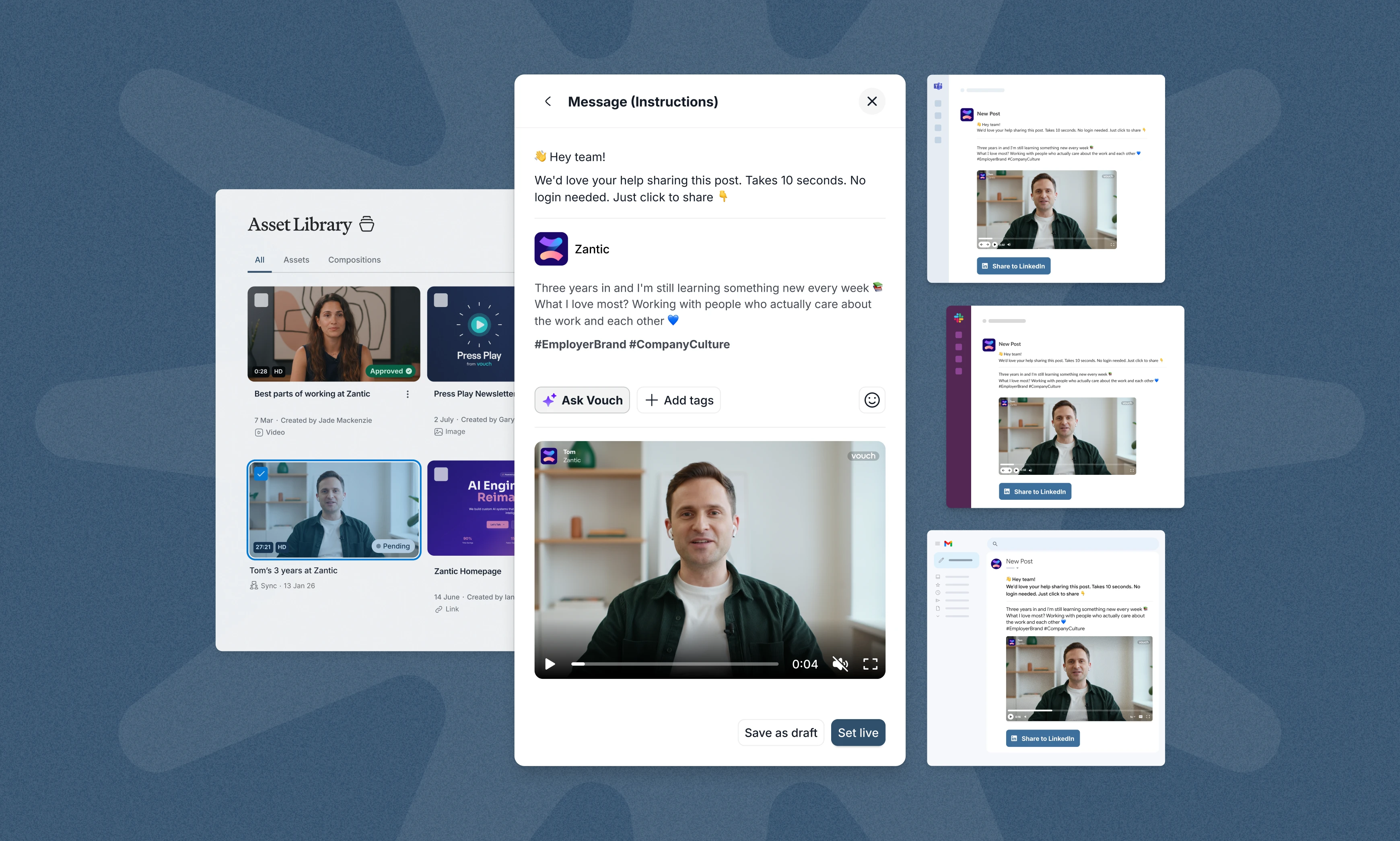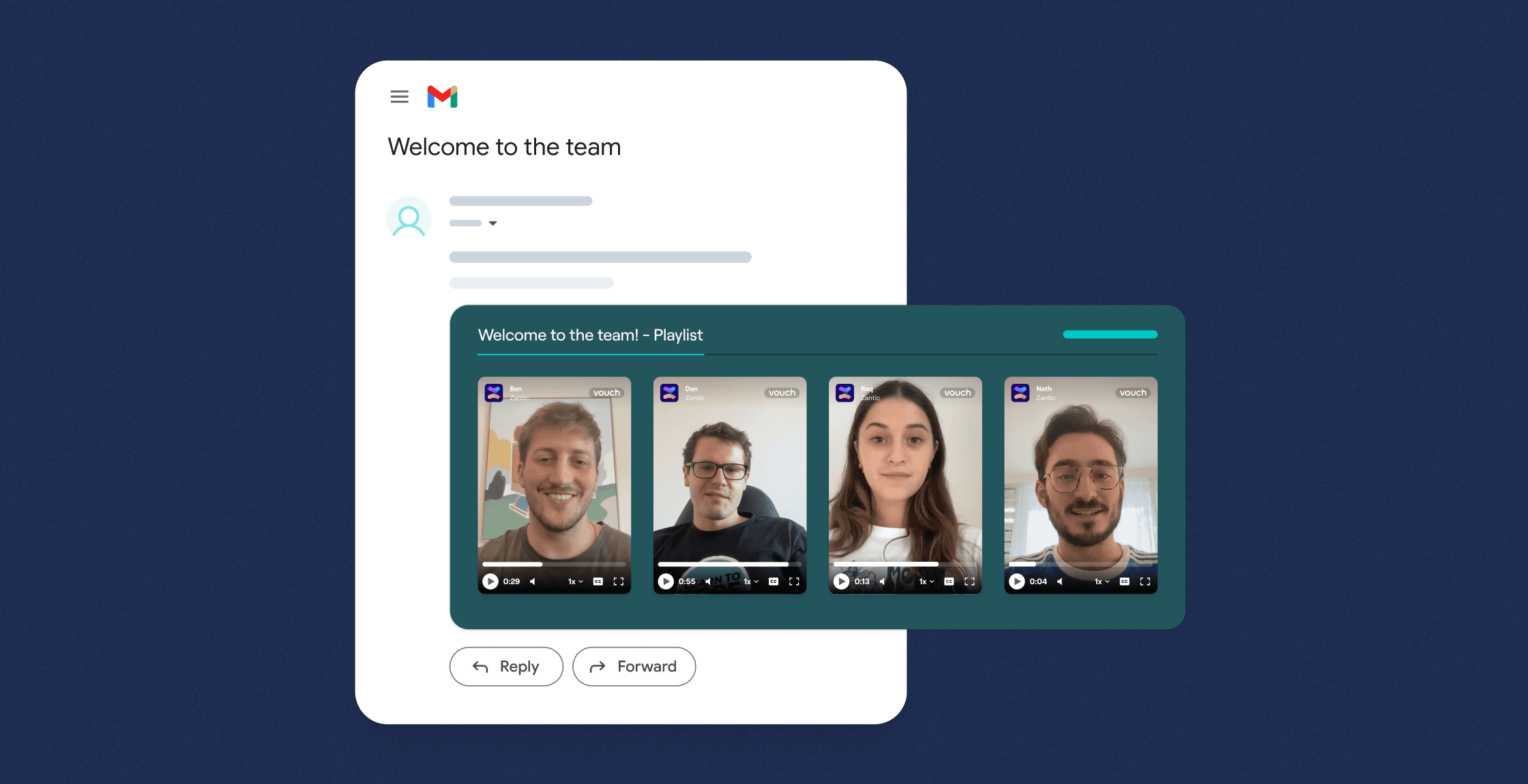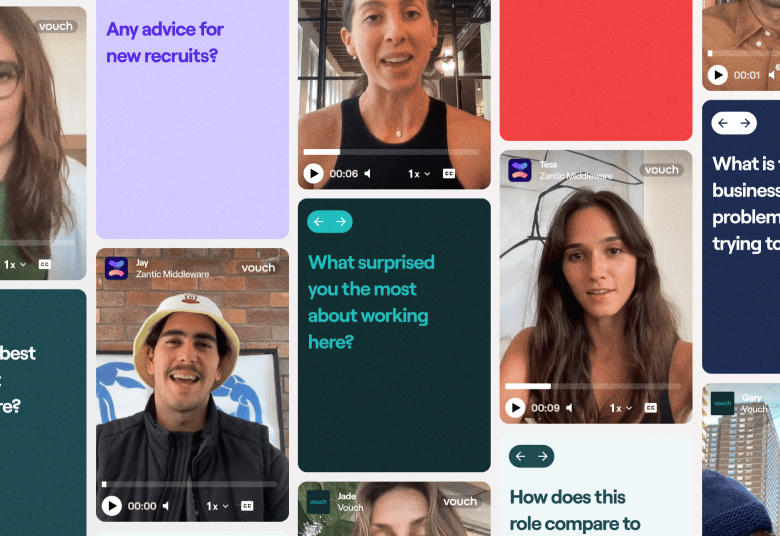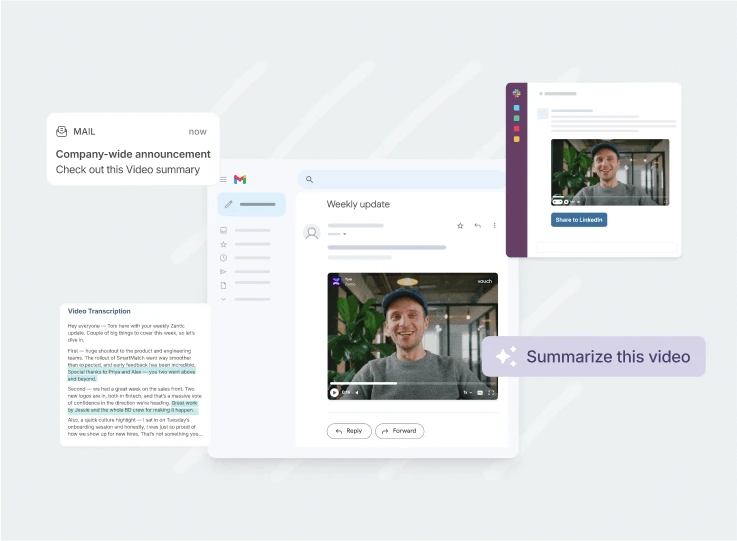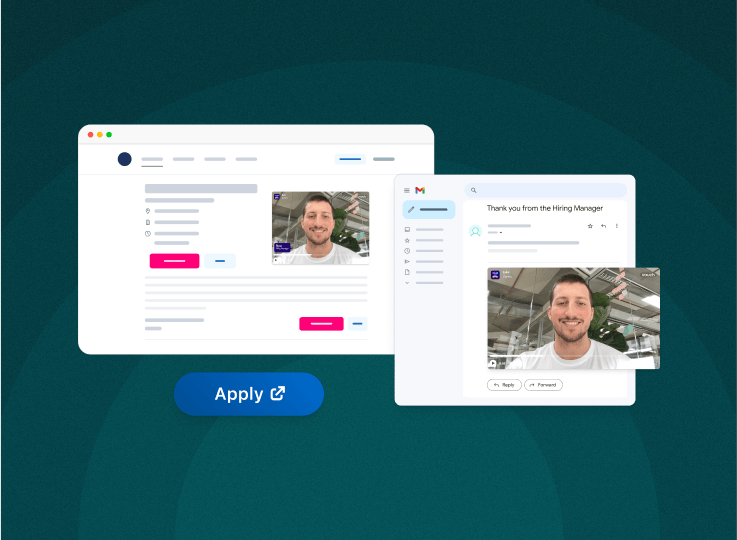Are you wondering why your company's pre-boarding process is important, or what preboarding even means?
Imagine you've just accepted an exciting new job offer. The period between accepting the offer and starting your first day can be filled with uncertainty and anxiety. This is where pre-boarding comes in.
And in 2026, the key to preboarding is a proactive approach to ensure that new hires feel welcomed, informed, and engaged before they even set foot in the office.
The goal is to make every new employee's experience personal before they even start.
In this article, we'll explain pre-boarding and why it's crucial, and we'll provide you with a step-by-step guide to implement a successful pre-boarding strategy.
Let's dive in.
What Is The Meaning Of Pre-Boarding?
Pre-boarding is the process that occurs after a candidate accepts a job offer but before they officially start their first day.
It's designed to bridge the gap between the offer acceptance and the official onboarding process.
During pre-boarding, you aim to provide your new hires with all the information they need to feel prepared, excited, and confident about their new role.
This process not only eases the transition for new employees but also helps retain top talent by making them feel valued before they even start.
What Are The Differences Between Pre-Board And Onboarding?
Pre-boarding and onboarding are both critical stages in the employee integration process, each serving distinct purposes.
Pre-boarding:
This occurs after a candidate accepts a job offer but before their first day at work. It aims to prepare new hires for their roles and make them feel welcome. During pre-boarding, you can send personalized welcome videos and emails, provide access to necessary resources, help new employees complete paperwork, and set up accounts for essential tools.
This phase helps reduce first-day anxieties and enhances early engagement, ensuring new hires feel connected to your company and culture from the outset.
Onboarding:
on the other hand, begins on the employee's first day and continues for several weeks or months. This process focuses on integrating new hires into the company culture, providing job-specific training, growing engagement and helping them understand their roles and responsibilities.
Onboarding includes activities such as orientation sessions, introductions to team members, and ongoing support to ensure the new hire's successful adaptation to their new environment.
While pre-boarding sets the stage for a smooth transition, onboarding ensures that new hires are fully integrated and equipped to thrive in their new roles. Both stages are essential for creating a positive and practical employee experience.
Why is Pre-Boarding Important For Recruitment?
When it comes to employee experience and engagement, first impressions count. You need to provide a remarkable experience at the preboarding stage of your employee's journey.
Here's why preboarding is essential:
- Reduces First-Day Jitters: By providing essential information and a warm welcome, you can alleviate new hire anxiety.
- Improves Retention: Engaging new hires early can significantly reduce the risk of them backing out before their start date.
- Enhances Productivity: A well-prepared employee can hit the ground running, reducing the time it takes for them to become fully productive.
- Builds Company Culture: Early engagement helps new hires assimilate into the company culture more smoothly.
- Builds Trust: Even during the first day, ensuring your new employees know they can ask questions is vital. Your preboarding process needs to build trust from the get-go.
The AI-enabled workspace for talent teams.
- Unified workspace for talent teams
- Accelerate hiring with AI tools
- Auto-generate polished hiring and employer brand content
- Easily repurpose assets across all channel
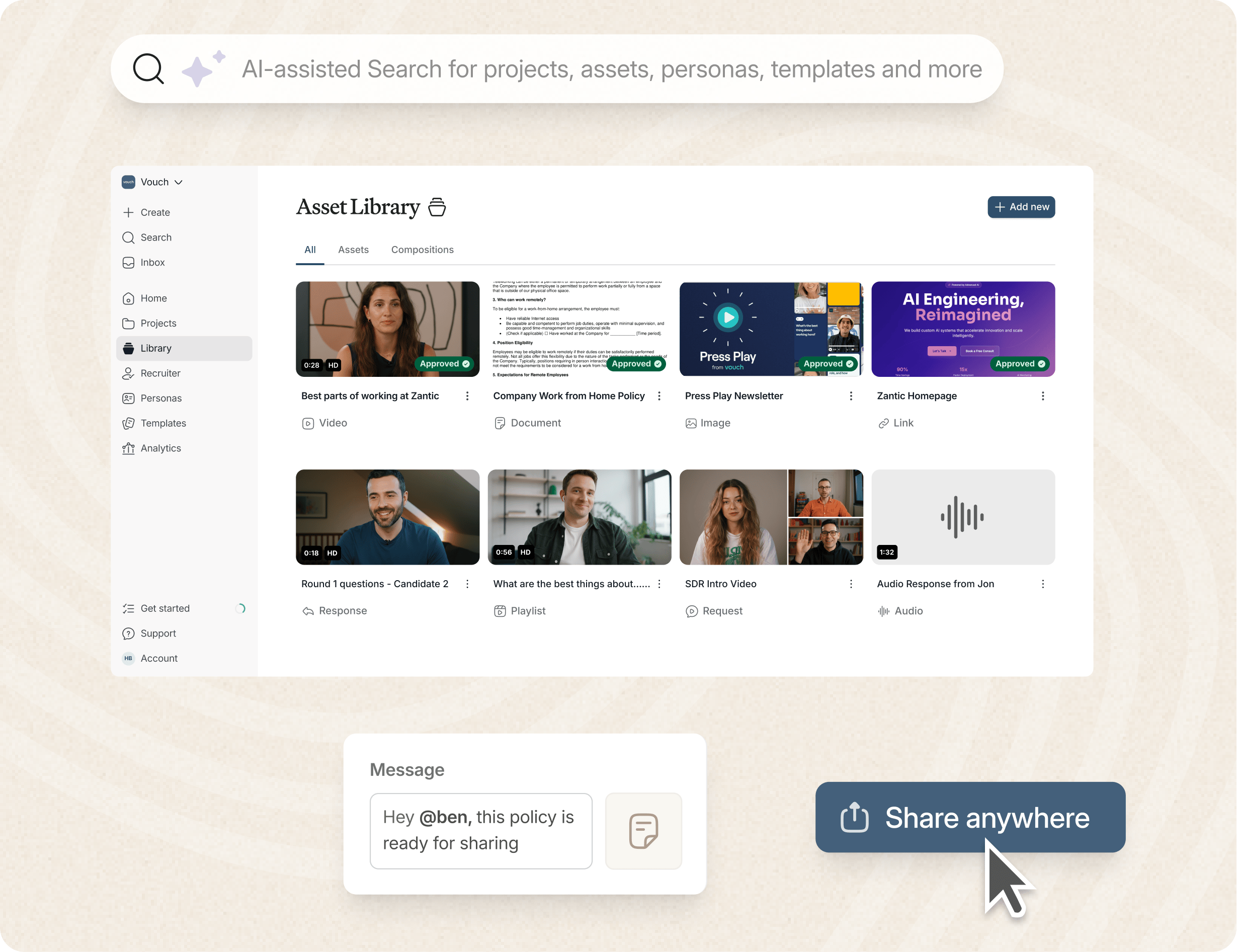
The Step-by-Step Guide to a Successful Pre-Boarding Process in 2026
Once set up, your preboarding process should be fairly easy to manage.
We suggest standardizing 80% of the process and customizing 20% to the individual employee's needs.
Here are the steps to use:
1. Send An Memorable Welcome Package
Once your new hire has accepted the offer, send them a personalized welcome package.
This can include:
- A personal welcome video from your CEO or their manager
- Company swag (like branded notebooks, pens, or apparel)
- An employee handbook with an overview of company policies and culture
2. Provide The Essential Information
Ensure your new hire knows what to expect on their first day.
Send them:
- A detailed first-day agenda
- Information on what to bring (e.g., identification, documents)
- Directions to the office and parking information
- Dress code guidelines
- You can do all of this by video to make it nicer, too!
3. Set Up Their Workstations
Before their first day, make sure their workstation is ready.
This includes:
- Setting up their computer and necessary software
- Preparing their email and other login credentials
- Stocking their desk with basic office supplies
4. Introduce The Team
Facilitate introductions before they start.
You can:
- Share a team directory that's ideally employee videos, or photos and roles
- Organize a virtual meet-and-greet with their immediate team
- Encourage team members to send personal welcome messages, too
5. Assign An Onbarding Buddy
Pair your new hire with a buddy or mentor.
This person can:
- Answer any questions they may have
- Provide insights into the company culture
- Be a friendly face they can rely on during their initial days
6. Engage Employees Super Early
Keep your new hire engaged by:
- Sending them relevant industry articles or company updates
- Inviting them to upcoming company events or webinars
- Encouraging them to join company social media groups
7. Set Clear Roles And Expectations
Help your new hire understand their role by:
- Sending them a detailed job description
- Outlining key projects they'll be working on initially
- Sharing performance metrics and goals for their first few months
8. Feedback and Follow-Up
Maintain an open line of communication.
Reach out to:
- Confirm receipt of all documents and information
- Answer any additional questions they may have
- Schedule a check-in call a few days before their start date
With these steps in place, your new employees will eagerly await their start date, have more confidence, and be highly motivated to do their very best work at your company!
FAQs
What is employee pre-boarding, and how does it differ from onboarding?
Employee pre-boarding is the process between a new hire's acceptance of a job offer and their first day at work. Unlike onboarding, which focuses on integrating the new employee into the company, pre-boarding aims to prepare them for their role and make them feel welcome before they officially start.
Why is pre-boarding important for new hires?
Pre-boarding is crucial because it helps new hires feel engaged and connected to the company early on. It reduces first-day anxieties, improves retention rates, and sets the stage for a smoother transition into the workplace.
What activities are typically included in a pre-boarding process?
Typical pre-boarding activities include:
- Sending welcome videos and emails.
- Providing access to an employee portal.
- Sharing company materials (such as the employee handbook and company culture guide).
- Completing necessary paperwork.
- Setting up accounts for email and other essential tools.
How can tech companies enhance their pre-boarding experience?
Tech companies can enhance the pre-boarding experience by providing virtual tours of the office, scheduling introductory meetings with team members, offering online training sessions, and ensuring all technology and equipment are ready for the new hire's first day.
What are the benefits of an effective pre-boarding process?
An effective pre-boarding process leads to higher employee engagement, faster productivity, improved job satisfaction, and reduced turnover rates. It ensures new hires feel valued and prepared, making them more likely to stay with the company long-term.
Conclusion
Pre-boarding is a critical phase in the recruitment process that sets the tone for a new hire's experience with your company.
By investing time and effort into a structured pre-boarding process, you can significantly enhance employee satisfaction, retention, and productivity. Remember, the journey doesn't start on the first day; it begins the moment a candidate accepts your offer.
So, make every moment count and ensure your new hires feel valued and welcomed from day one.
And vitally, make their pre-boarding personal with the user of video tools like Vouch, so they can get to know you and your team prior to starting.
Pre-Boarding Is Beautifully Easy With Vouch?
Loved by companies like Canva, Nike, Cisco, HubSpot, Amazon, and more, tools like Vouch make leveraging video in your business remarkably easy.
Be sure to book a Vouch demo today and chat with a video content expert.
You might also like

Elevate Your Brand Today With Vouch
Discover how Vouch can accelerate talent acquisition while helping you stay on-brand.

